画像 transfer function equation 332696-Transfer function equation is y=f(x)
TRANSFER FUNCTIONS we difierentiate dky dtk = fiky(t) and we flnd dny dtn a1 dn¡1y dtn¡1 a2 dn¡2y dtn¡2 any= a(fi)y(t) = 0 If s= fiis a pole the solution to the difierentialA SISO continuoustime transfer function is expressed as the ratio G (s) = N (s) D (s), of polynomials N(s) and D(s), called the numerator and denominator polynomials, respectively YouRecall that Transfer Functions are represented in this form TF(s)=O(s)/I(s) where O(s) is the output and I(s) is the input After a system has been represented by a Transfer Function, the

Transfer Function Of Control System Electrical4u
Transfer function equation is y=f(x)
Transfer function equation is y=f(x)-In this video, i have explained Transfer Function of Differential Equation with following timecodes 000 Control Engineering Lecture Series0 ExampleSteps to obtain transfer function Step1 Write the differential equation Step2 Find out Laplace transform of the equation assuming 'zero' as an initial condition Step3 Take the ratio of output




Control Systems Need Some Help Checking My Solution Draw And Write The Force Equation Of The Linear Translational System Shown And Find The Transfer Function At Figure Set Mg 0 For
The transfer function H (ω) can be expressed as H (ω) = N (ω)/D (ω) (143) where N (ω) and D (ω) are not necessarily the same expressions for the input and output functionsCompute answers using Wolfram's breakthrough technology & knowledgebase, relied on by millions of students & professionals For math, science, nutrition, historyThe transfer function can be expressed as the ratio of two polynomials, N(s) in the numerator and D(s) in the denominator, such as The roots of the polynomial in the denominator D ( s ) are
Example 1 Consider the continuous transfer function, To find the DC gain (steadystate gain) of the above transfer function, apply the final value theorem Now the DC gain isTaking the Laplace transform of both sides, assuming zero initial conditions, we have sC (s)2C (s)=R (s) sC (s)2C (s) = R(s) (256) The transfer function, G (s), is G (s)=\frac {C (s)} {RFind the transfer function of the system with state space representation First find (s I A) and the Φ = (s I A) 1 (note this calculation is not obvious Details are here ) Rules for inverting a 3x3
Transfer functions are a frequencydomain representation of linear timeinvariant systems For instance, consider a continuoustime SISO dynamic system represented by the transferTransfer function = V o u t ( s) V i n ( s) = R R 1 s C After writing this initial transfer function based on component impedances, we will algebraically manipulate it to eliminate compound fractions This research proposes a methodology based on control engineering, transforming the simulation model of system dynamics into a mathematical model expressed as a system transfer




Control Systems Need Some Help Checking My Solution Draw And Write The Force Equation Of The Linear Translational System Shown And Find The Transfer Function At Figure Set Mg 0 For



The Transfer Function And The Roots Of The Characteristic Equation Download Scientific Diagram
The summing node and the G(s) and H(s) blocks can all be combined into one block, which would have the following transfer function Y ( s ) X ( s ) = G ( s ) 1 G ( s ) H ( s ) {\displaystyle {\dfracSingle Differential Equation to Transfer Function If a system is represented by a single n th order differential equation, it is easy to represent it in transfer function form Starting with a third orderTo convert form a diffetential equation to a transfer function, replace each derivative with 's' Rewrite in the form of Y = G(s)X G(s) is the transfer function



Engineer On A Disk
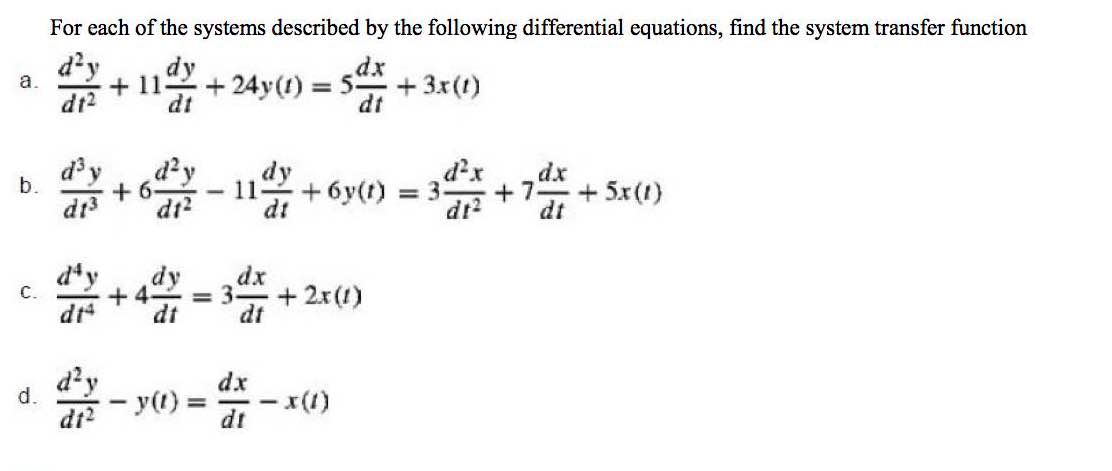



Solved For Each Of The Systems Described By The Following Chegg Com
Procedure for determining the transfer function of a control system are as follows We form the equations for the system Now we take Laplace transform of the system equations,




Transformation Transfer Function State Space
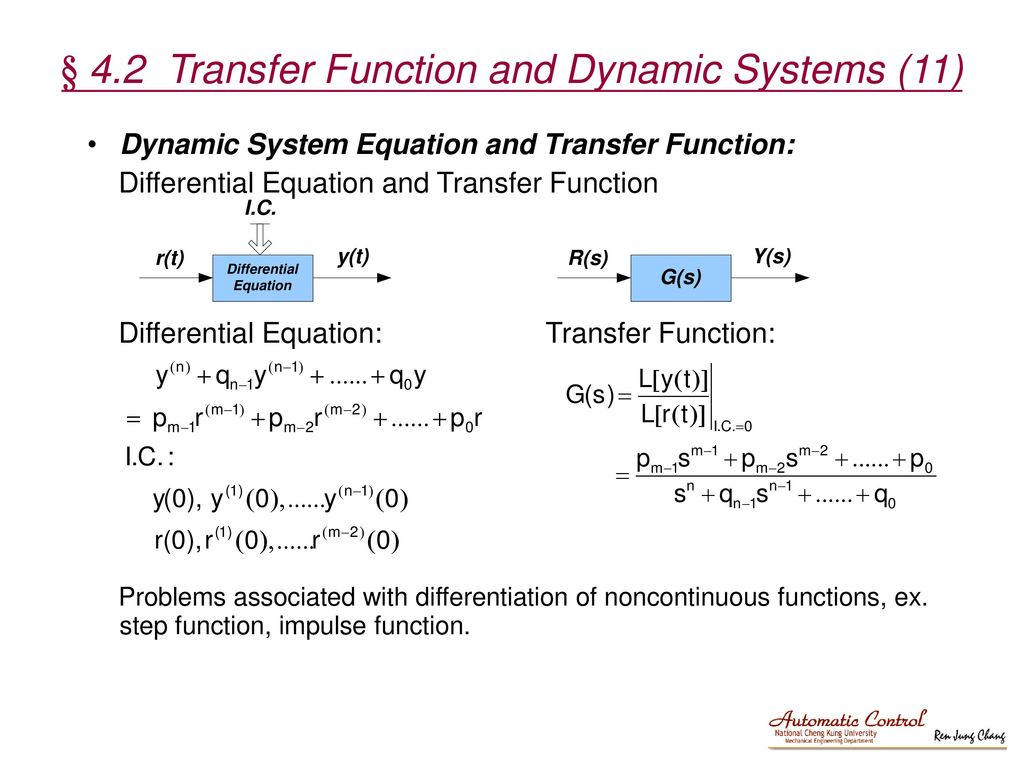



Chapter 4 Transfer Function And Block Diagram Operations Ppt Download




Continuous Signals From Transfer Function To Differential Equation Signal Processing Stack Exchange




Transfer Function Derivation Download Scientific Diagram
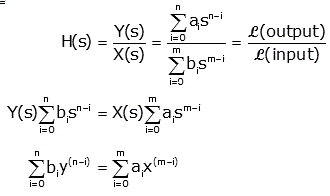



Transformation Single Diff Eq Transfer Function
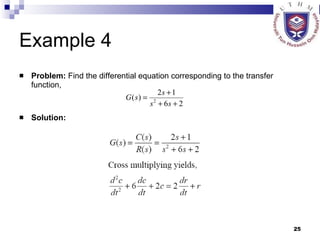



Meeting W3 Chapter 2 Part 1
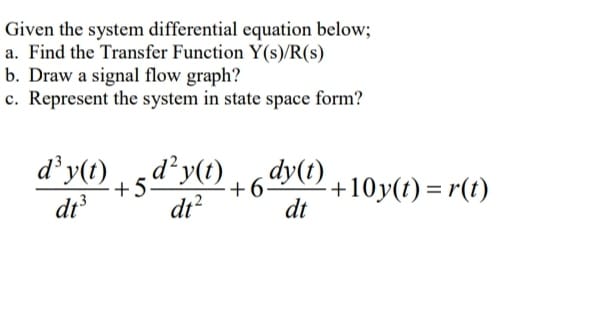



Answered Given The System Differential Equation Bartleby




Ece3 Lecture2 2b State Equation Solutions Transfer Functions Youtube




Introduction To Transfer Function Youtube




Transfer Function Derivation Download Scientific Diagram




Transfer Function Of Control System Electrical4u
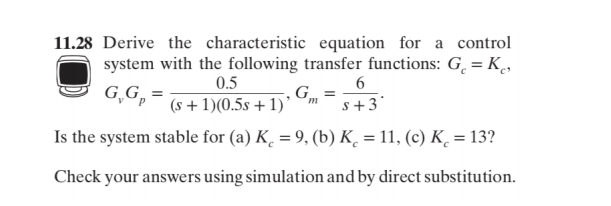



Solved 11 28 Derive The Characteristic Equation For A Chegg Com
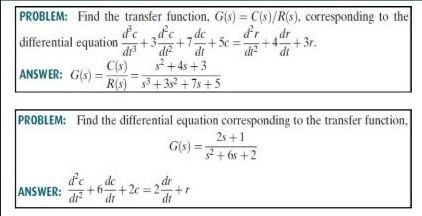



Answered Problem Find The Transfer Function Bartleby
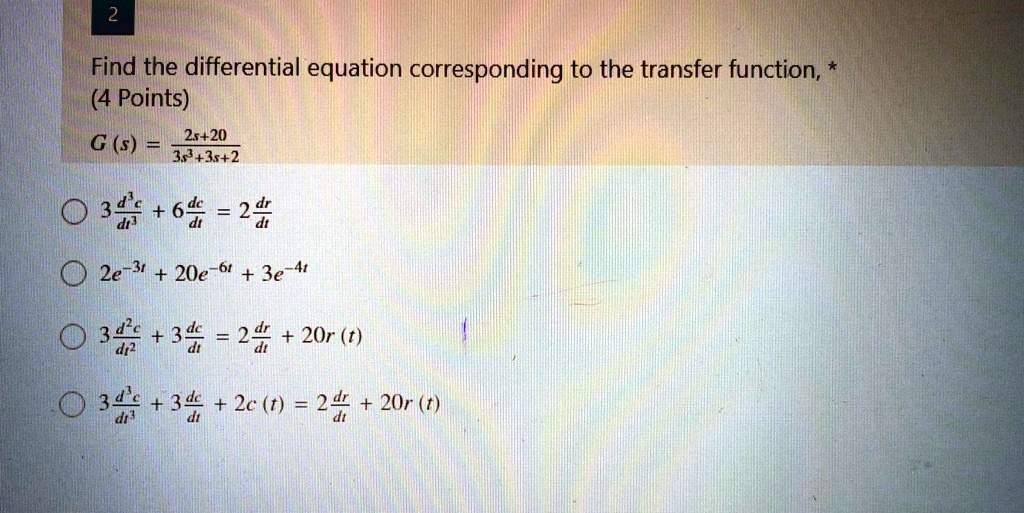



Solved Find The Differential Equation Corresponding To The Transfer Function 4 Points G S 25 35 35 2 33 64 24 2e 3t e 3e 4 34 34 24 r T 34 34 2c T 24 r T
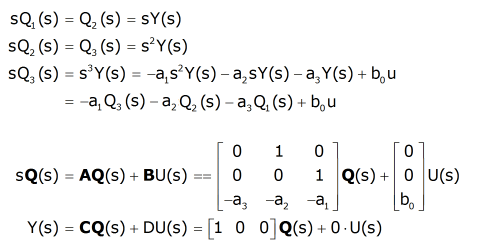



Transformation Transfer Function State Space




Model Transfer Functions By Applying The Laplace Transform In Ltspice Analog Devices




How To Solve Transfer Function With Step Function Appplied To The Input Electrical Engineering Stack Exchange
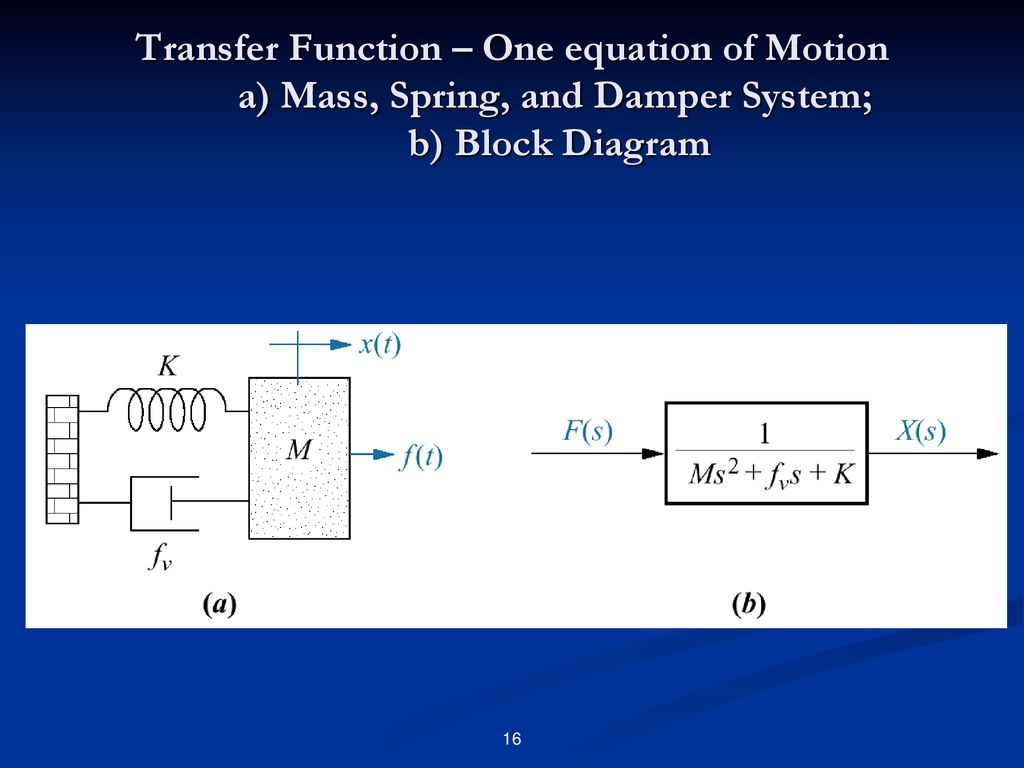



The Transfer Function Ppt Download
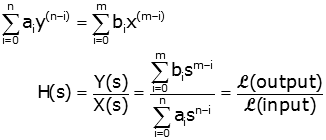



Transfer Function Representations Of Linear Physical Systems




Transformation Single Diff Eq Transfer Function




Two Pole



Transfer Function Question Related To Algebra R Ece




Ee 27 Sas L15 1 15 Lecture 15 Continuous Time Transfer Functions 6 Transfer Function Of Continuous Time Systems 3 Lectures Transfer Function Frequency Ppt Download
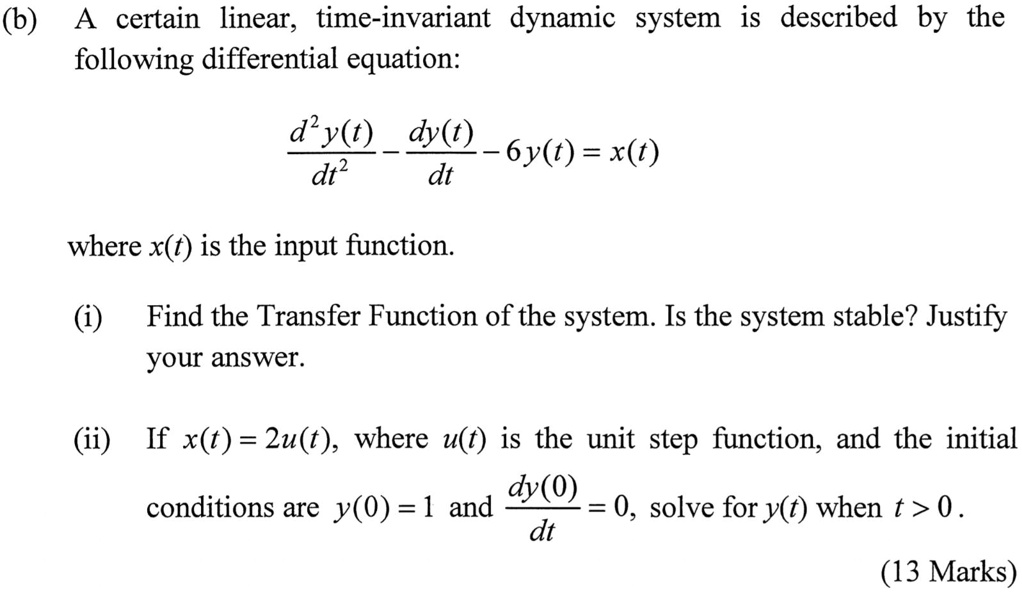



Solved 6b A Certain Linear Time Invariant Dynamic System Is Described By The Following Differential Equation Dy Dy0 6y X T Dt2 Dt Where X T Is The Input Function Find The Transfer Function Of



19 More About Transfer Function And Units Linking How Does It Work Automatics Computers Etc



Engineer On A Disk
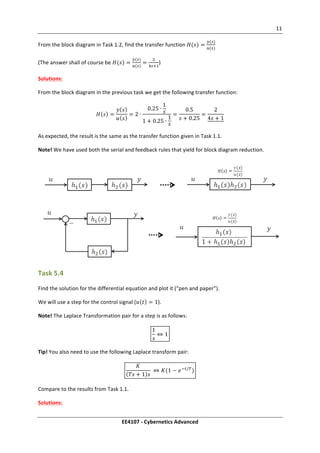



Exercise 1a Transfer Functions Solutions




2 A Feedback And B Parallel Decomposition Of A Generic M N 2 Download Scientific Diagram



Q Tbn And9gcs8ddfyg8iarqyn We2bcdpvfq5idtsf0dinx43rzbfivso5vbjs8sh Usqp Cau



Ebook Dynamic System Modeling And Control




Transformation Single Diff Eq Transfer Function




Me 340 Example Converting Ode To A Transfer Function Youtube




Transfer Function Of Control System Electrical4u




Transfer Functions Dynamics And Control
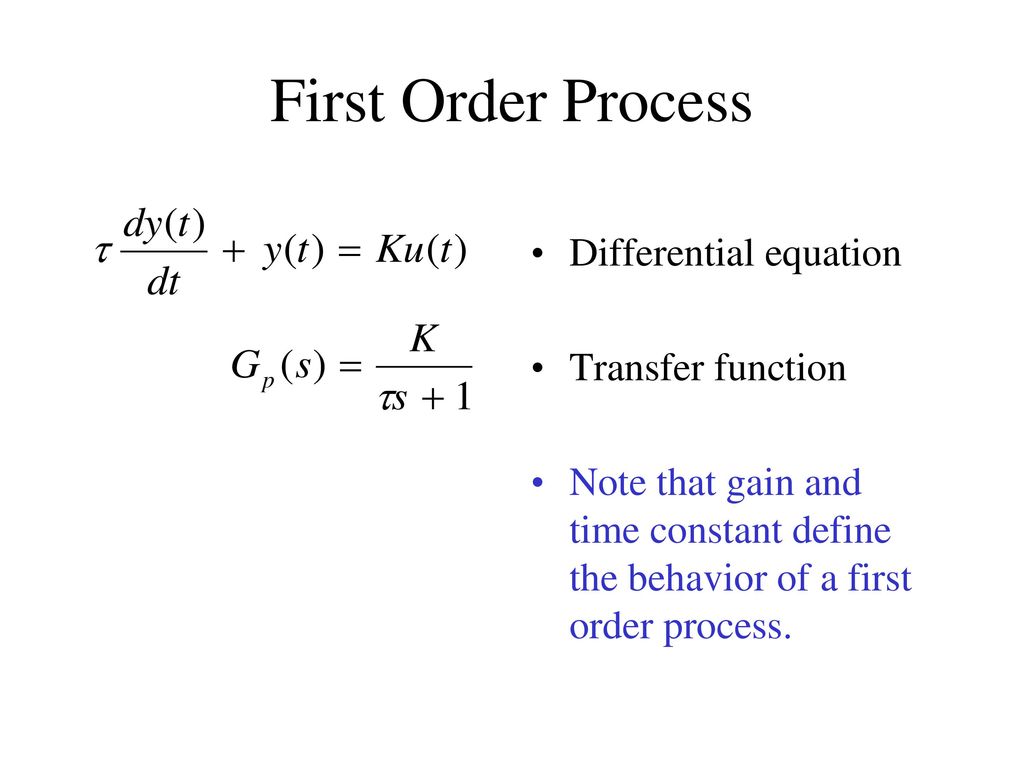



Transfer Functions Chapter 4 Ppt Download




Transfer Function Youtube
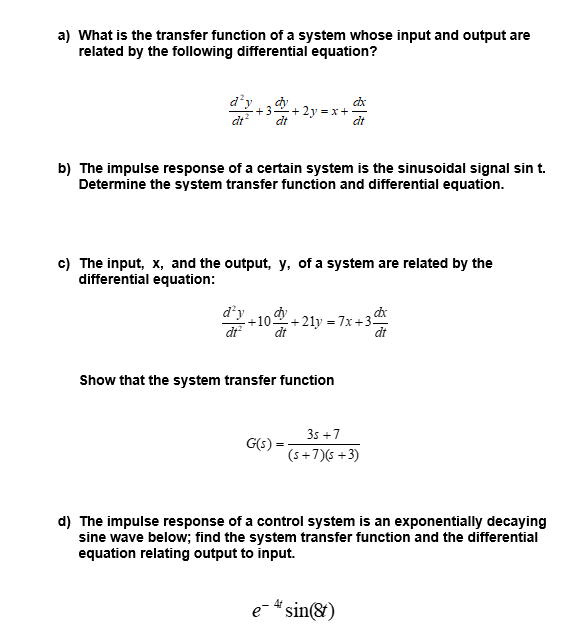



Answered A What Is The Transfer Function Of A Bartleby




Transfer Function Calculation Youtube



Engineer On A Disk



Solved Find The Differential Equation Corresponding To The Transfer Function Course Hero



H1 Align Center Enotes Mechatronics And Controls H1




Learn What Is Transfer Function Quickly Wira Electrical



Solved Consider The Transfer Function H S S 2 5s 24 S 2 S 1 2 Be Sure To Show All Work If You Use Octave Show All Commands That Yo Course Hero



2
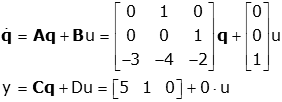



Transformation Transfer Function State Space



Q Tbn And9gcrkppnqh87sypcnqoujkuk 6kx Kicgumm4suigvhdkl 6sy6uagngb Usqp Cau



2
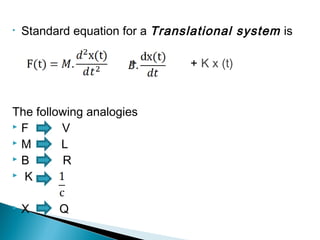



Transfer Function And Mathematical Modeling
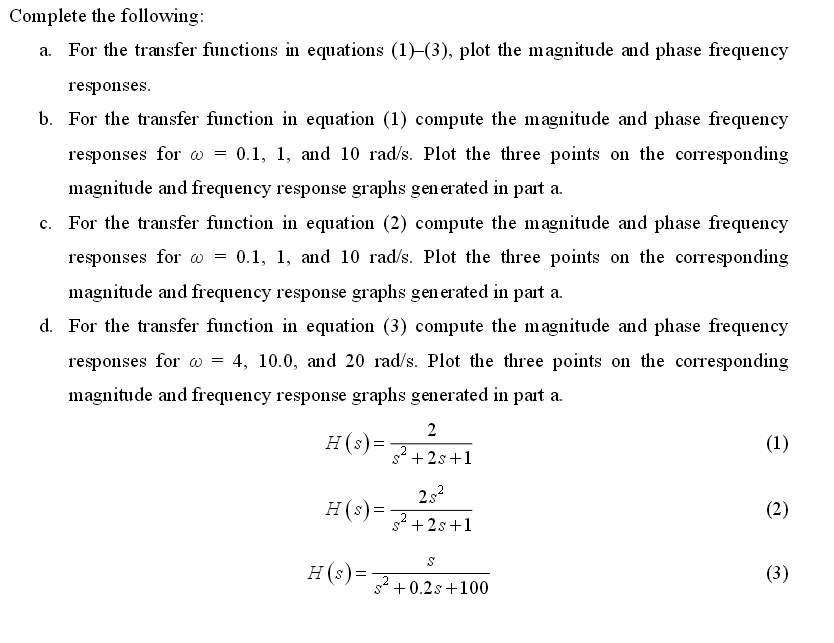



Complete The Following A For The Transfer Functions Chegg Com
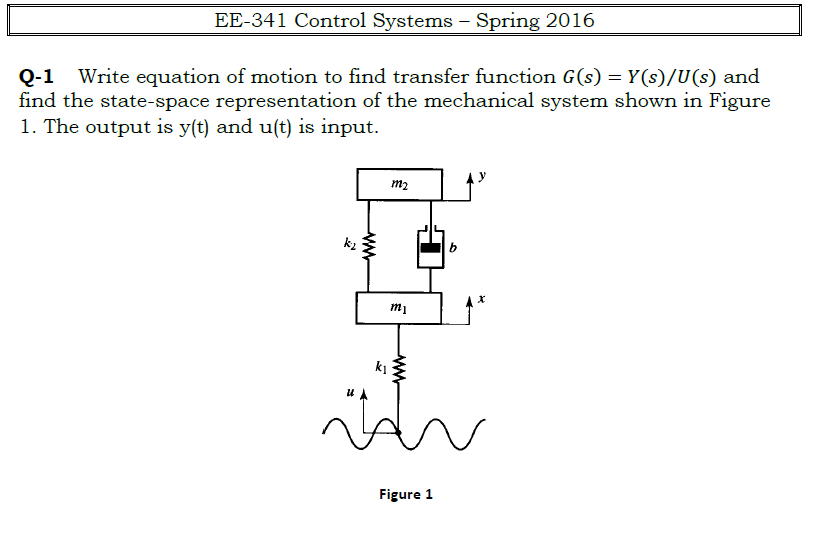



Solved Write Equation Of Motion To Find Transfer Function Chegg Com
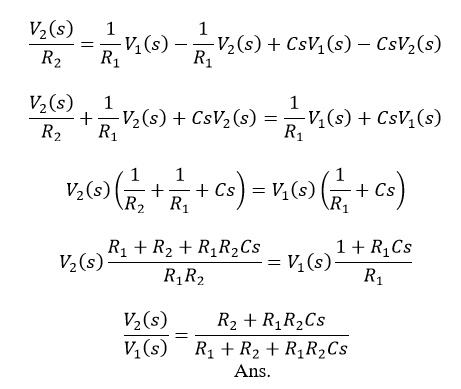



Control System Transfer Function Javatpoint




Transfer Functions Convenient Representation Of A Linear Dynamic Model A Transfer Function Tf Relates One Input And One Output The Following Terminology Ppt Download




Control System Transfer Function Javatpoint




How To Find The Transfer Function Of A System X Engineer Org
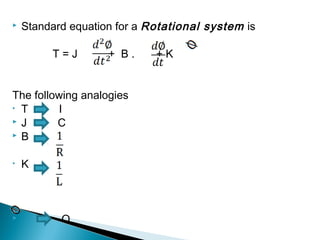



Transfer Function And Mathematical Modeling




Transfer Function Of Control System Electrical4u




Laplace Transform Transfer Function Of Controller Mathematics Stack Exchange
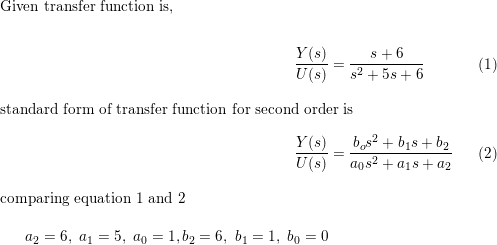



Consider The Following Transfer Function System Frac Y S Quizlet



Cant Find The Transfer Function For A System Starting Off A Simple Differential Equation R Mathhelp




The Transfer Function Equation And Co Efficients Of The Physical Model Download Table
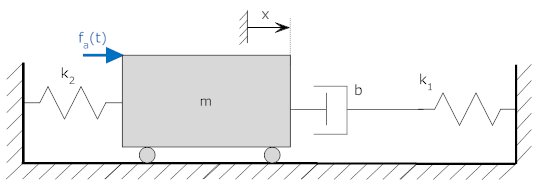



Transformation Single Diff Eq Transfer Function
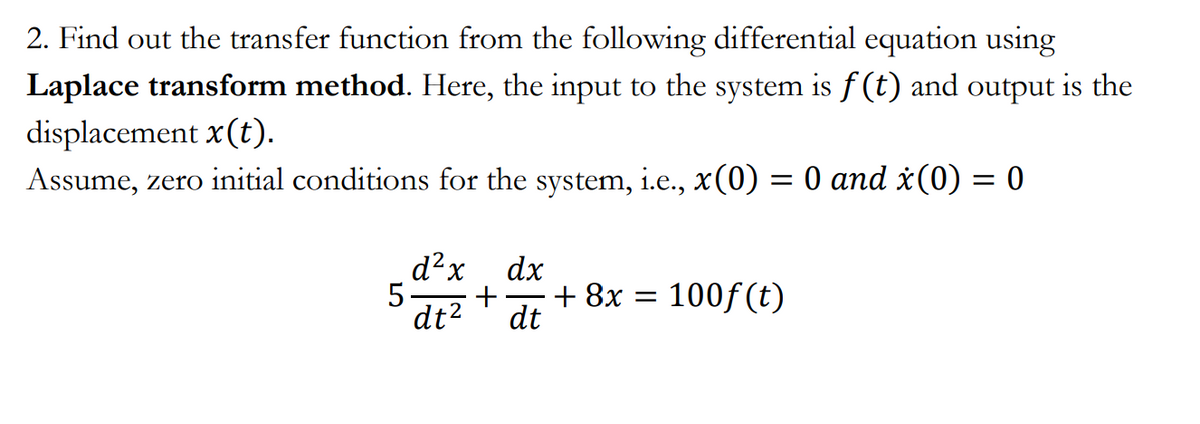



Answered 2 Find Out The Transfer Function From Bartleby



Transfer Function Of First Order Delay System Low Pass Filter




Correlation Between Transfer Functions And State Space Equations
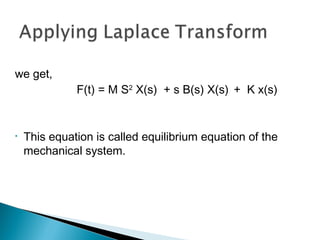



Transfer Function And Mathematical Modeling



Engineer On A Disk
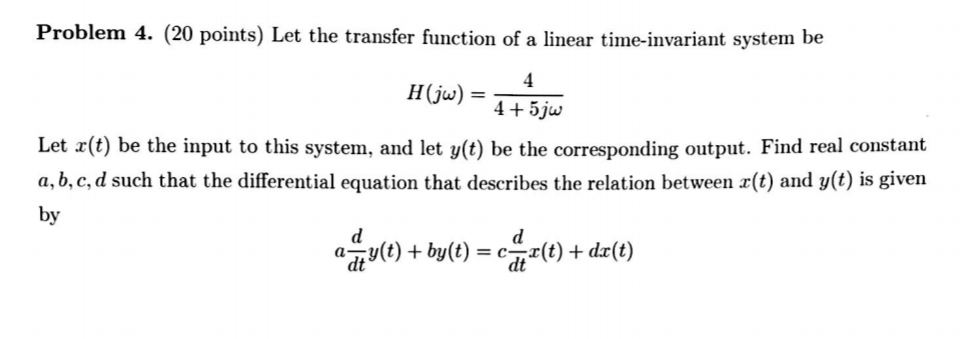



Solved Let The Transfer Function Of A Linear Time Invariant Chegg Com



Ebook Dynamic System Modeling And Control
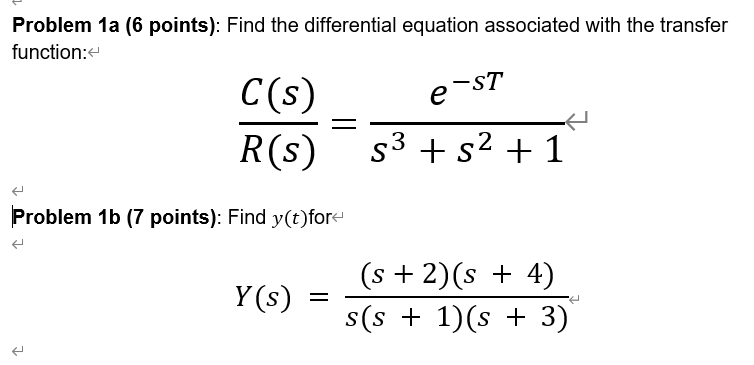



Solved Problem 1a 6 Points Find The Differential Equation Chegg Com




Passive Networks Differential Equation Of A Rrc Circuit As Voltage Output Voltage Input Electrical Engineering Stack Exchange
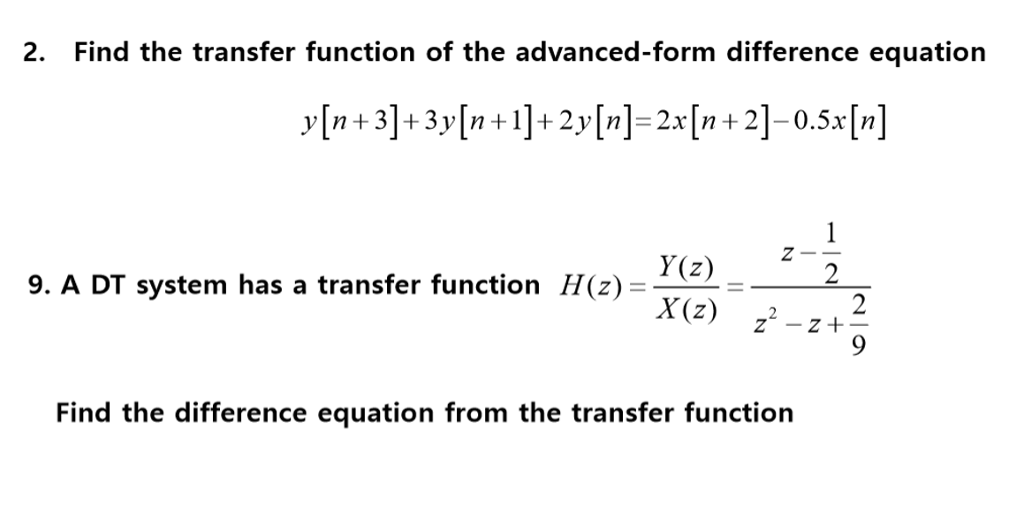



Solved 2 Find The Transfer Function Of The Advanced Form Chegg Com




Algebra Of A Transfer Function Mathematics Stack Exchange




Find The Transfer Function Equation Of The Following O Study Qa




Transfer Function Of A Control System Characteristic Equation Poles Zeros Youtube
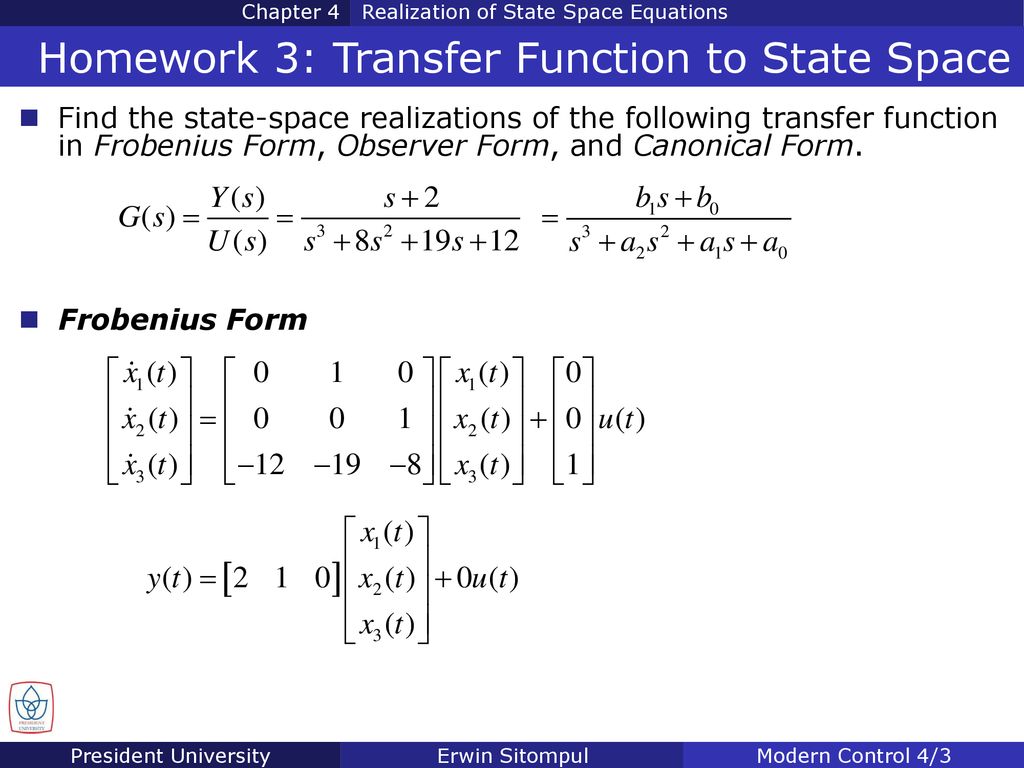



Homework 3 Transfer Function To State Space Ppt Download




Differential Equation From Transfer Function Youtube
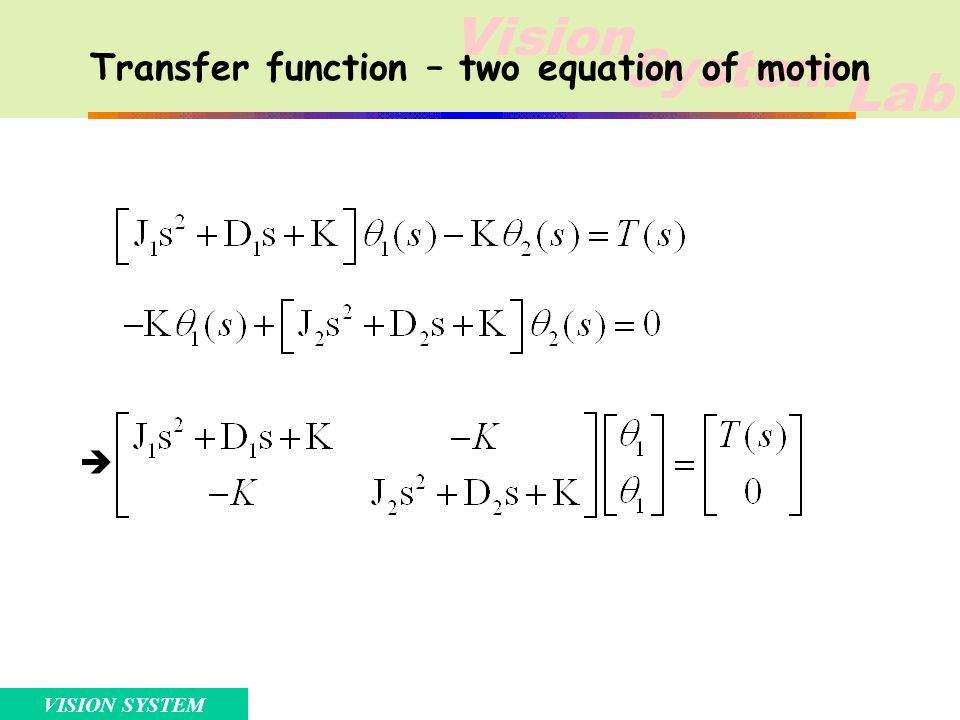



Chapter 2 Modeling In The Frequency Domain Ppt Video Online Download




Transfer Function Of Our Rf Stm According To Equation C11 Measured Download Scientific Diagram




Laplace Transfer Function To Differential Equation Youtube
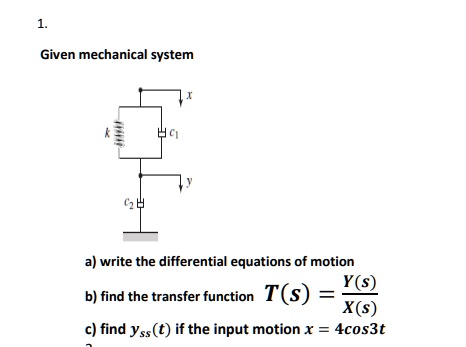



Solved Given Mechanical System Write The Differential Equations Of Motion Y S B Find The Transfer Function T S X S C Find Yss T If The Input Motion X 4cos3t




Solved A Unity Feedback System Has A Loop Transfer Function E635 K L S S S 2 S 5 S 12 Where K 15 Find The Roots Of The Closed Loop Sys Tem Characteristic Equation




Chapter 09 Finding The Transfer Function From The Differential Equation Youtube




First Order Control System What Is It Rise Settling Time Formula Electrical4u




Stationary Solution To A Inhomogeneous Differential Equation Mathematics Stack Exchange




Transfer Function Of Control System Electrical4u




12 The Open Loop Transfer Function Of The System Is Obtained By The Download Scientific Diagram
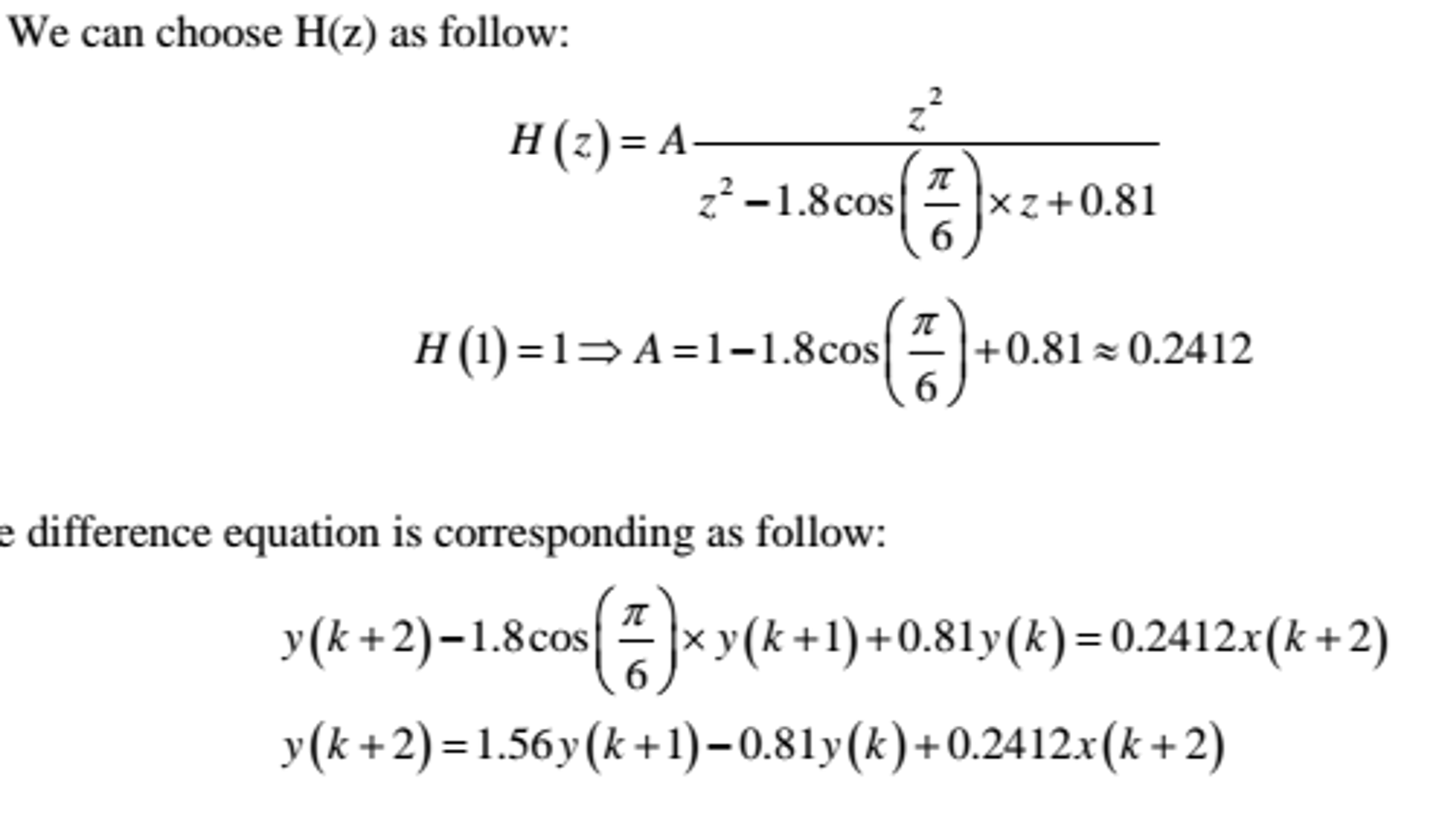



Solved Find The Transfer Function And The Difference Chegg Com



Transfer Function Calculator




Transfer Function Equation When Ft2 Is Constant And Ft1 Is Variable Download Table
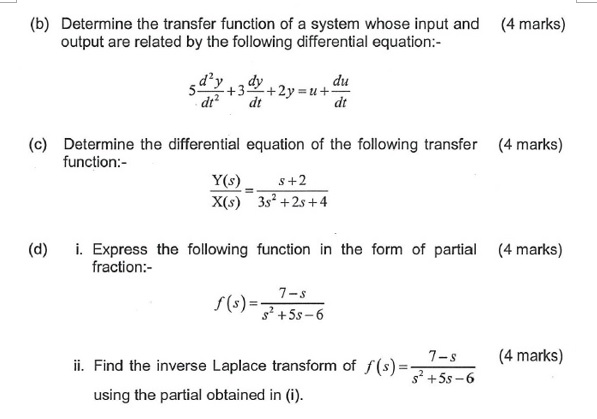



Solved B Determine The Transfer Function Of A System Whose Chegg Com



2
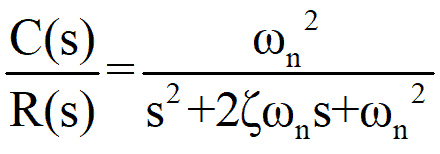



Time Response Of Second Order Transfer Function And Stability Analysis




Transformation Single Diff Eq Transfer Function




How To Find The Transfer Function Of A System X Engineer Org



Engineer On A Disk



Engineer On A Disk




Examples Write The Transfer Function Of The Electrical Circuit Including Op Amp Operational Amplifier Write The Matlab Program To Calculate The Eigenvalues Ppt Download




12 The Open Loop Transfer Function Of The System Is Obtained By The Download Scientific Diagram




Transfer Functions For A Lead Compensator Circuit Multibody Multi Domain Physical Model In Maplesim Maplesoft



Q Tbn And9gcs9i9lgsfjoqbogq3asyg7ppmhrinjusuknbgutcn1mu6d6ynbg2xxz Usqp Cau



コメント
コメントを投稿